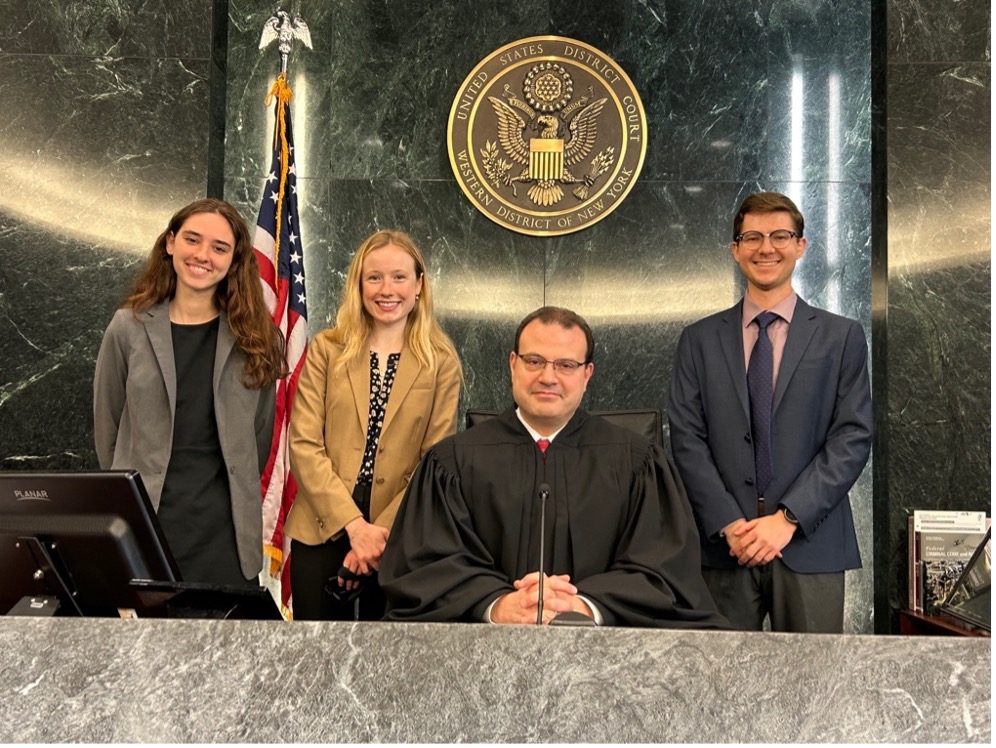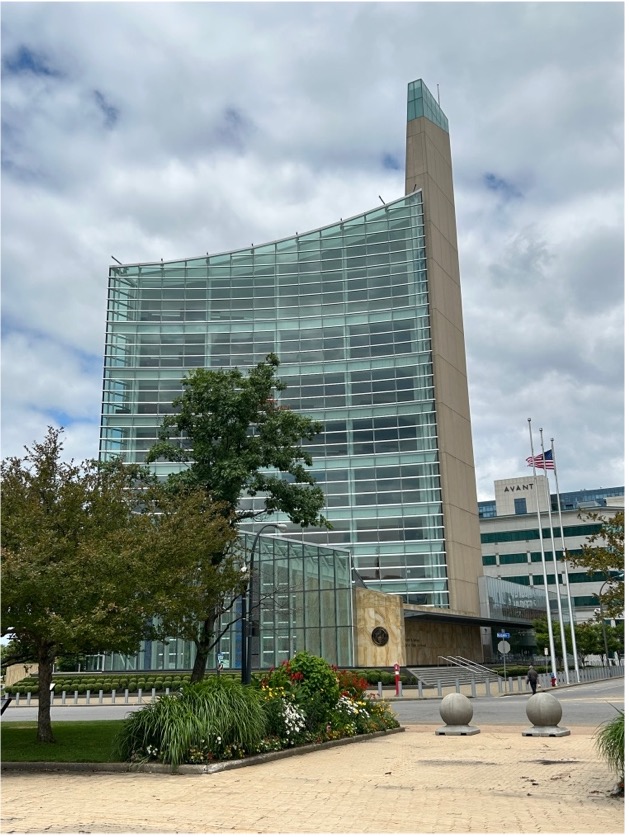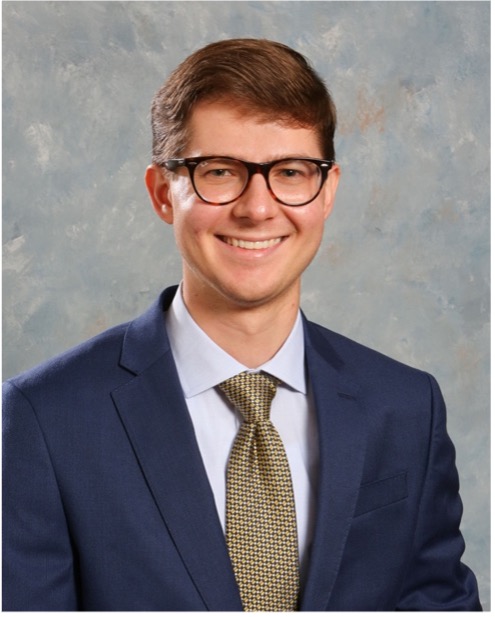
By: Michael A. Gossel ’25
This summer, I was very fortunate to intern for the Honorable Judge John L. Sinatra, Jr., United States District Court Judge for the Western District of New York. When I walked through the front door of the Robert H. Jackson Courthouse every morning, I knew I would observe outstanding advocacy and learn from the Judge and his talented team of law clerks.
A focus of this internship is to give interns the opportunity to observe court proceedings. We saw litigators masterfully argue for their clients. The attorneys who left the best impression exemplified the traits of great lawyering, such as preparedness, brilliance, and attention to detail.
I learned, however, that legal advocacy involves more than arguing. Drafting motions, complaints, answers, and briefs is a core skill of an effective litigator. Lawyers are known to do a lot of reading, but I found that research skills are also essential to the job. The attorneys who arduously search to find the closest case on point are the ones who are rewarded in the courtroom.
Most of the cases I observed were criminal. I remembered from my Criminal Law professor that lawyers must have the ability to discuss sensitive topics and deal with emotional subject matter. My summer with the Court reinforced this lesson, as I learned that judges must compartmentalize and issue the proper sentence after analyzing the law and hearing from the defendants, probation officers, and victims about why the defendants committed the acts they did. At times, it seemed like sentencing is the toughest part of being a judge. Having to decide based on the sentencing guidelines, the case law, and the defendant’s criminal history does not always provide a clear answer. I also learned that the defendant can really help his or her case by issuing a well-written formal apology and owning up to a bad mistake.

Many of the defendants we saw in Court had committed vile acts, but others had simply made poor decisions as a result of circumstance. When issuing a sentence, judges consider defendants’ character, commitment to family, commitment to the community, and potential for rehabilitation as guide marks. I came to sympathize with many of the defendants who made one poor choice but were otherwise good people who knew they had done wrong.
I loved the opportunity to work with a great team of talented law clerks. I learned that it is helpful to submit work promptly (after proof-reading and cite-checking), to ask good questions, and to spend extra time to make sure you came to the right decision.
The Western District of New York is very fortunate to have such outstanding judges on the bench. I loved observing how Judge Sinatra presided over the courtroom by being fair and impartial. I also enjoyed Judge Vilardo’s even-handed, and brilliant, temperament.
Furthermore, I also learned that Buffalo is blessed with an outstanding, collegial, and talented legal community. The attorneys here are willing to work with each other, they are kind people, and they appear to get great satisfaction out of their jobs. It was great to meet the many friendly people who work at the Courthouse, including the Court Security Officers, US Marshals, court reporters and deputies, and other wonderful staff.
This opportunity would not have been possible without the University at Buffalo School of Law Summer Public Interest Funding & Fellowship Program. I am also very grateful for the generosity of Francis and Cindy Letro. This was an experience which I will remember for my entire legal career. I would also like to thank Judge Sinatra, Kristen Flick, Christine Gibbons, Mary Moran, and Pearce Embrey for all the work they did to help me learn. I am so grateful that I could observe the challenging but exciting work of a law clerk. I also want to think Kirstie Henry and Bonnie Weber for being friendly and for making the Court such a great place to work. Finally, thank you to my fellow interns, Kaitlin Hughes and Cecilia Honan, for checking over assignments and being great people to work with. I will certainly remember this experience and carry the many lessons I learned to my legal practice.

Name: Michael A. Gossel ’25
Fellowship: UB School of Law Public Interest Summer Fellowship funded by Francis M. Letro ’79 and Cindy Abbott Letro
Placement: United States Federal Court for the Western District of New York, Hon. John L. Sinatra
Location: Buffalo, NY
One important lesson I have learned from this fellowship: “I learned that the law is a noble profession, and it gives people a rare opportunity to help change lives for the good of society.”